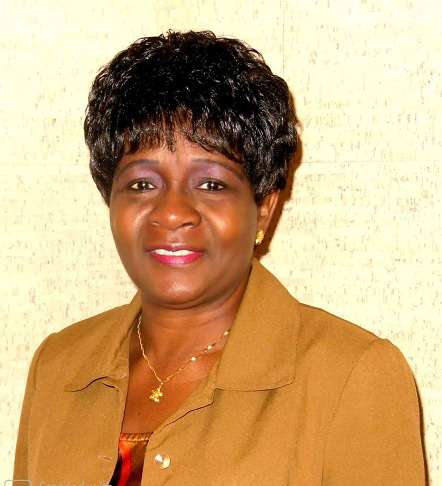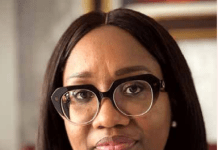
Dr Funmilayo O. Ajayi is a clinical pharmacology & biopharmaceutics consultant. She served as a national research council resident research fellow at Walter Reed Army Institute of Research, Maryland, USA. Thereafter, she spent over 10 years at the Centre for Drug Evaluation and Research (CDER) and FDA, and almost 14 years at Procter & Gamble (P&G).
In this exclusive interview, Ajayi, who is a Fellow of both the London Institute of Science Technology and the American College of Clinical Pharmacology, highlights role of scientific research in national development, while also addressing other pressing issues in healthcare such as antimicrobial resistance, pharmaceutical technology and cost-effective drug development process that require urgent attention. TEMITOPE OBAYENDO spoke with her.
Please tell us a little about your background and education.
I am the first of six children of Rev. Samuel and Mrs Deborah Oladitan, both of blessed memory. My father, a minister within the Baptist Church in Nigeria, had the opportunity to also be a school superintendent in early 1960s. On the other hand, my mother was a primary school teacher. Both of my parents valued education to such a degree that they gave opportunity to several young people within their spheres of influence to live with them so they could go to school. Most of them got educated to the highest level within their careers.
I received a PhD in Pharmacology, with emphasis on experimental therapeutics, from the University of Ibadan, Nigeria. I worked at the Pharmacology Department and The Ibadan Polytechnic, while pursuing my postgraduate education.
Following my postgraduate education, I worked at the Biology Department, Ogun State Polytechnic, in Abeokuta, and later at the Department of Pharmacology, Ogun State University Teaching Hospital, Sagamu.
My areas of interest and focus are biopharmaceutics, pharmacokinetics, pharmacodynamics, drug safety, and pharmacovigilance. I am a Fellow of the London Institute of Science Technology, the American College of Clinical Pharmacology, and the Nigerian Association of Pharmacists and Pharmaceutical Scientists in the Americas (NAPPSA).
I was fortunate to receive the National Research Council Resident Research Fellowship Award, which took me to Walter Reed Army Institute of Research in Silver Spring, Maryland, USA. This opportunity opened a rare door for me at the Centre for Drug Evaluation and Research (CDER) of the US Food and Drug Administration (FDA) where I served for over 10 years. This was followed by 14 years of global research & development responsibilities with Procter & Gamble (P&G), in Cincinnati, Ohio.
What informed your decision to study Pharmacology?
My interest in the sciences started while at the Baptist Girls High School, Osogbo, Osun State. We had wonderful science teachers who made the subjects easy to grasp and appreciate. I was interested in going for Medicine, until I was presented with an opportunity in the field of basic medical sciences for a Science Laboratory Technology Diploma in Pharmacology & Physiology within the Institute of Science Technology, London.
It was no brainer for me to keep a keen focus in Pharmacology since I was already working as a science laboratory technologist in the Department of Pharmacology and Therapeutics at the University of Ibadan. Realising that it was possible to obtain the Fellowship of the London Institute of Science Technology via a masters’ level thesis, I embarked on doing that and, successfully so.
Receiving the Fellowship of the London Institute of Science Technology opened the opportunity for me to apply to the Postgraduate School of the University of Ibadan, where I earned a master’s degree and, subsequently, a Doctor of Philosophy degree in Pharmacology.
I am blessed and proud to be the first science laboratory technologist to go through this route of education, which eventually opened the door that others have successfully gone through in Nigeria.
As a veteran researcher, do you see scientific research as a tool for national development?
Yes. This is because successful achievement of national goals is only feasible when the relationship between research and innovation is fully explored, developed, and utilised. A well-known fact is that nothing can be achieved without scientific research. Science is a tool for national development that yields significant knowledge creation, ample understanding, and utilisation of various unique strategies. This enhances national health and wellbeing, infrastructural developments, agricultural productivity, mining of natural minerals, economic and social development, to mention a few.
What is needed most in our country is a strong collaboration among the universities, industries, governmental agencies and the like. This is because collaborative research is very transformational. It helps reduce inefficiencies in the system, build research capacity and enhance research capability. All of which will result in timely understanding of complex national problems and creation of innovative solutions to same.
Can you share with us major factors in drug development that will aid the Nigerian pharmaceutical industry in local drugs manufacturing?
The wealth of knowledge, expertise, and experience of the drug development paradigm within the industry, academia, as well as the regulatory arena in Nigeria is noteworthy. Unfortunately, the major outages and limitations hindering the pharmaceutical industry in Nigeria are with respect to poor infrastructure, such as good roads, electricity, and water supply; lack of end-to-end solutions to drug manufacturing, viz ability to manufacture active pharmaceutical ingredient (API) and high-grade pharmaceutical excipients; as well as insufficient number of clinical research facilities for Phase I to Phase III clinical trials.
Focused joint efforts by the federal and state governments, in terms of funding and authentic leadership, is urgently needed to ensure that Nigeria does not stay too far behind in the world of pharmaceutical research, technology, development, and manufacturing.
Again, from your years of experience, how would you place technology in drug development?
While pharmaceutical technology is an essential aspect of efficient and cost-effective drug development, manufacturing, and drug delivery, the importance of technology in general cannot be overstated. It is critical at all stages of drug development, starting from technologies used for lead drug candidate identification and selection, study protocol development, data generation, data collection, data analysis, and disease therapeutics management, such as prediction of drug response, drug failure, and/or drug safety profile.
How would you assess the performance of Nigerian pharmacologists in clinical pharmacology? Are there areas requiring improvements?
Our clinical pharmacologists are doing their very best by devoting a lot of efforts to research, even with the limitations being faced because of inadequate research funding, poor infrastructure, and little to no leadership support. Hence, based on the above, I will say that they are making excellent strides despite the obstacles they face.
Having worked on anti-infectives review, what would you recommend as a solution to recurrent antimicrobial resistance issue in Nigeria?
The resistance to antimicrobial agents in our dear country is a significant medical issue that may soon become very problematic with emergence of “superbugs”. Consequently, there is an urgent need for a deliberate and targeted joint effort by the government and healthcare professionals to curb the outrageous access to, misuse and abuse of antimicrobial drugs in Nigeria.
What is your message to young pharmacologists aspiring to be like you?
Keep exploring new opportunities and don’t let anything stop you from learning because knowledge is wealth and, keep in mind that the art of medicine is rapidly evolving.











